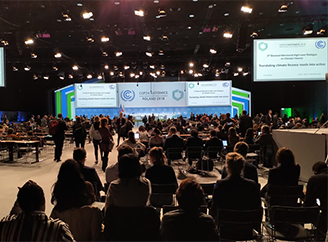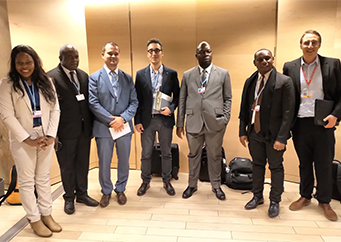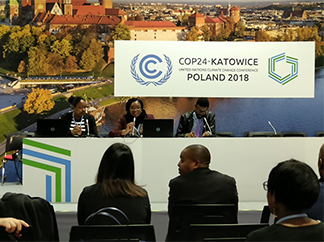consent_cookie
Duración: 1 year
Stores the user's cookie consent state
28-12-2018
Chile will host the COP25. We will see if that summit arrives, the news and indicators are better than those presented in Katowice, at COP24, organized this past December. The report prepared by the UN Intergovernmental Panel on Climate Change (IPCC) states that the temperature of the planet will increase by 1.5 degrees Celsius in a decade unless urgent action is taken to reduce carbon dioxide (CO2) emissions globally.
2018 has brought new evidence that climate change is having increasingly serious consequences, ranging from heatwaves in the Arctic to rising sea levels and increased acidification of the oceans.
The main objective of the COP24 has been to define the rules that will govern the Paris Agreement, which will come into force in 2020. The summit, likewise, has not been exempt from some controversy as several countries questioned some of the recent climate research .
Rules to comply with the Paris Agreement
The approved regulation establishes how to monitor the national emission reduction plans. At present there is some flexibility in the case of some developing countries, since they do not have sufficient resources to carry out a detailed analysis on the evolution of their emissions. During the COP, the states agreed to update their national carbon reduction targets (Nationally Determined Contributions or NDCs) by 2020. With this, several of the richest countries will be able to strengthen their commitments in the fight against global warming.
No agreement has been signed, however, on the rules for the establishment of new carbon markets, in particular on the elimination of double counting of carbon credits negotiated across borders. Therefore, the issue has been postponed to COP25.
The financing mechanisms have been another of the sensitive points of the agreement: finally COP24 has approved an increase in contributions. Thus, the Adaptation Fund will have an additional 129 million dollars. On the other hand, the Green Climate Fund already accumulates 10,300 million dollars.
The role of Humana in the COP24
A small team of Humana People to People has actively participated in the Polish summit. This type of high level meetings allows Humana to strengthen and expand contacts, identify potential partners and follow the latest trends in the fight against the effects of global warming. During COP24 the team has attended events related to climate finance, resistant food systems and value chains, green economy and entrepreneurship, etc. In addition, he held interesting bilateral meetings with several African national delegations.
For example, they participated in a meeting with the delegation of the Ministry of Lands, Agriculture, Water, Climate and Rural Settlements of Zimbabwe, led by the Deputy Minister, Vangelis Peter Haritatos. The main objective of the meeting was to identify national priorities on mitigation and adaptation interventions to climate change, as well as opportunities to access funds from multilateral donors such as the Green Climate Fund (GCF).
Bilateral meetings with Zimbabwe, Angola and Botswana, respectively
They also organized a meeting with António Manuel, Secretary General of Juventude Ecológica Angolana (JEA), the only Angolan NGO accredited to the UN Framework Convention on Climate Change (UNFCCC). JEA has actively participated in the development of Angola's National Climate Change Strategy, presented at COP24. During the meeting, the needs of civil society organizations in Angola were discussed, as well as the possible areas of collaboration between both entities.
Another meeting held during the summit was with Tracy Sonny, of the National Coordinator of Climate Change Network of Botswana (BCCN). During the meeting, Humana's team presented the work that is being carried out both in this and in other countries of the region, with special attention to the actions undertaken by small farmers. A clear example is the promotion of Climate Smart Agriculture (CSA) practices in the Farmer Clubs Projects. For his part, Sonny highlighted the work of BCCN on training subjects for the Ministry of Environment, Wildlife and Tourism (MEWT), as well as its role in coordinating various actors related to the fight against climate change in Botswana.
At the same time Humana was present at an interesting conference of GACSA, the Global Alliance for Climate-Smart Agriculture, of which the organization is a part, and in different events promoted by international organizations at the forefront in the fight against climate change such as the African Development Bank (AfDB), the Global Environment Facility (GEF) and the Green Climate Fund (GCF).


